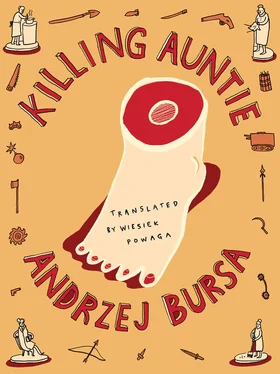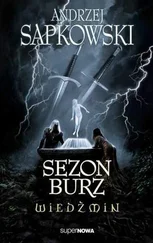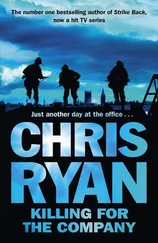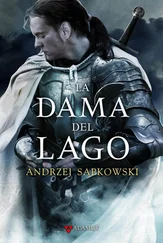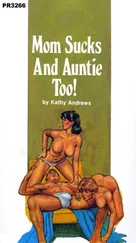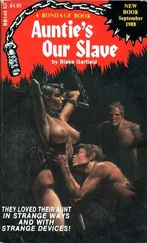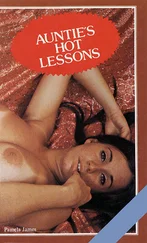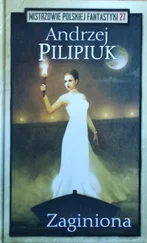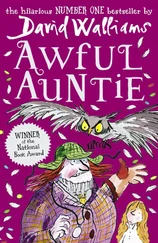I had a bit of stage fright before lighting the stove. It was a much more difficult task than peeling potatoes. I tried not to admit it to myself though. With a poker and a coal spade I swept out the ash, revealing the bare grate. Quite a large proportion of the ash missed the bucket and ended up on the floor. But I didn’t worry too much about it. The floor needed to be scrubbed anyway. It had small puddles of Auntie’s dried-up blood on it, as well as a few drops of mine from the unfortunate finger. I thought I would have to wash the shirt too; its sleeves were stained with blood from when I was trying to bandage my wound. Taking bloodied linen to a laundry would be rather risky in my situation.
I placed a few sheets of old newspaper on the grate, and on top of them a few dry splinters of wood. Only then I decided to place among all this flammable material some pieces of coal. The first match went out the moment I brought it near the stove. The second and the third likewise. I remembered that there was a draft inside the stove that put out small flames. I hit on the idea of lighting a piece of paper outside the stove and putting it inside only when it was properly burning. Alas, I ran out of matches. I looked on top of the stove; I found several boxes, all empty. A search of the entire flat was equally fruitless. I was delighted when on Auntie’s night table I found a box which was heavy and rattled when I picked it up. But all the matches inside were burned. There was no other way: I had to go downstairs and buy matches. I accepted it without grumbling.
I had to go out to buy cigarettes anyway, of which I had only two left; they wouldn’t last me till midday. In the kiosk on the corner I purchased two boxes of matches — one for my pocket, the other for the household — a packet of cigarettes and today’s paper.
I could not refuse myself the pleasure of leafing through the pages before lighting the stove. I sat on the stool and checked the headlines. I always started with news reports, although the names of diplomats or international events did not interest me at all. Inside there was an article with an enticing title but the text was so long and gray I knew I would never be able to read it. Below I found a column in italics signed by a local hack, from whom I couldn’t expect anything good. Finally I reached the back page, my favorite. Among the gossip, small ads, weather forecasts and other short pieces I found the following headline: “Matricide on Death Row.”
I read on:
“The trial concluded yesterday of Edward Wąsacz, aged nineteen, from the village Żylin, in Dąbrowa district, accused of carrying out murder on the person of his mother, Weronika Wąsacz, aged forty-five. On the 27th of this month the accused returned home in a state of inebriation and when his mother remonstrated with him he punched her in the face. The woman began to scream and cry for help, in response to which her son struck her on the head with an axe, causing an open fracture of the skull. Following this, the murderer buried the victim’s body under a pile of manure in the yard. Thanks to an energetic investigation the perpetrator was arrested just forty-eight hours later. After a guilty verdict in the county court, the pathological killer was sentenced to death.”
I found no parallel between this piece of news and my current situation. There was absolutely no psychological similarity between me and the country bumpkin from the Dąbrowa district. Nevertheless, I read the column carefully several times. I smiled to myself, imagining the sly drunk burying his corpse in a pile of manure. I also calculated how long forty-eight hours was, and whether it had passed since my killing of Auntie. It turned out it had not.
“Good,” I said aloud and kneeled before the stove, matches in hand.
I lit a sheet of newspaper and threw it inside. It curled up in flames and fell on the coal in a charred, scrunched up lump. The stove was black and cold again. I lit another sheet and placed it in such a way as to direct the flames onto the dry wood, then quickly put the burning match to the papers that were already there from earlier. The flame rose clear and high. The wood began to burn. Triumphantly I closed the stove hatch. A playful bright light flickered through the long slits in the iron hatch. Alas, it started to weaken and soon the stove gaped at me with empty eye sockets. It died. I was annoyed. I stuffed in as much paper as the stove would take and went to the larder, where Auntie kept a bottle of kerosene; there was still some left at the bottom. I lit the paper and poured the kerosene on the feeble flame. The inside of the stove burst into light and everything went up in flames in a jiffy. I watched as the wood caught fire and how the flame cuddled up to the coal with little sparks and made it glow.
I loved fire. As a child I could spend hours watching the charming yet fleeting shapes of burning objects, their last slow throes before annihilation. I liked watching old newspapers and trash transmogrify in their last moments into burning craters, assuming blindingly white forms. I liked watching the miraculous transformation of frail dry flakes now crackling in scarlet opulence. A few prods with the poker inside the stove stirred up a golden blizzard. I put some more pieces of coal in and closed the hatch.
It was much nicer in the kitchen now. Of course, the freshly kindled fire could not yet give much warmth but I knew it would soon be warm. I put a saucepan of water on the range and got busy with lunch. I fortified my tea with the Hungarian wine and checked the stove. Most of the coal was now glowing red. I took some of the glowing embers on the pan and carried them to the stove in the bedroom. Then I stoked both stoves with more coal. I felt like a prince in my modest castle. I looked into the pantry to compose a menu for the lunch. First of all the cutlets, which had been lying on the shelf for two days. I would fry them with potatoes. Fried eggs would make an excellent side dish too. Some sort of soup crossed my mind but I dismissed it as too complicated. I put on a big kettle of water. I checked for sugar in the sugar bowl and it turned out there was plenty. I spread the newspaper on the floor, brought in the basket, took out the knife and began peeling potatoes. It wasn’t difficult at all. I worked slowly, unhurriedly, calmly. Just as I finished the third potato, I felt a pang of anxiety. I felt vaguely as if I had committed a kind of desertion. It was all too pretty, too pastoral. After all, with all this calm and confidence one must not forget that there was a corpse nearby. And it could cause trouble. One silly accident and the crime would be out. I checked the stove. The heat was wonderful. I pushed the potatoes aside and went over to the bathroom.
When I stood over the corpse, I had to reprimand myself again for being absentminded and impulsive. I had brought no tools with me. I returned to the kitchen to fetch the axe. But with the axe I stood over the corpse just as helpless as before. The corpse was lying on the bottom of the tub, which precluded any sensible chop. I could of course hack at its face, open up the stomach or cut the chest, but that would not advance the job in any real way. My eyes alighted on the feet, sticking up above the edge of the bath. Why not start with the legs? I took a good swing and struck, aiming more or less in the middle of the tibia between the foot and the knee, at the point where the leg was resting on the rim of the bath. I struck and the bathroom was filled with a deep metallic boom. The bath rang out like a bell. I’d missed. I’d only scratched the calf, tearing up the stocking and the skin, and making a dent in the bath. The boom seemed interminable. I heard it out patiently, feeling terribly guilty. When the boom died out I tapped myself on the forehead.
Читать дальше
